|
Winter, Issue #9
News from Act Early Network Partners Act Early Forum Webinar: "Act Early State Systems Grantees Program Implementation, Outcomes, and Lessons Learned"

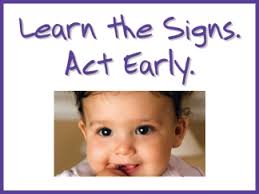 Register now for the winter 2016 Act Early Network webinar scheduled for Thursday, March 10, 2016 at 2pm-3pm ET. Act Early State Systems Grantee teams from North Carolina, Montana, and New Jersey will present their program implementation objectives, activities, outcomes, and lessons learned. The Act Early State Systems Grantees aim to strengthen their state and community systems for the early identification and improvement coordination of early intervention services for children with signs of Autism Spectrum Disorder and other developmental disabilities. The state teams will be sharing information on aligning and building on early identification efforts, overcoming barriers, bringing community expertise together, evaluation results, and faith-based training. You will have the opportunity to ask the state teams questions. Please register early by clicking on the above orange Register Here button. Register now for the winter 2016 Act Early Network webinar scheduled for Thursday, March 10, 2016 at 2pm-3pm ET. Act Early State Systems Grantee teams from North Carolina, Montana, and New Jersey will present their program implementation objectives, activities, outcomes, and lessons learned. The Act Early State Systems Grantees aim to strengthen their state and community systems for the early identification and improvement coordination of early intervention services for children with signs of Autism Spectrum Disorder and other developmental disabilities. The state teams will be sharing information on aligning and building on early identification efforts, overcoming barriers, bringing community expertise together, evaluation results, and faith-based training. You will have the opportunity to ask the state teams questions. Please register early by clicking on the above orange Register Here button.
"Learn the Signs. Act Early." Resources Now Available in Chinese or Korean
The "Learn the Signs. Act Early." Team is pleased to announce the completion of its project to translate and adapt the Milestone Moments booklet, Milestones brochure, and tip sheets (How to Help Your Child & How to Talk to the Doctor) into simplified Chinese and Korean. These materials were professionally translated and adapted in consultation with a small group of Chinese and Korean parents of young children and physicians. To access these files for local customization and/or printing, send your request to [email protected].
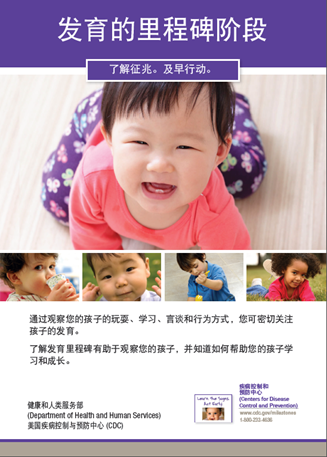 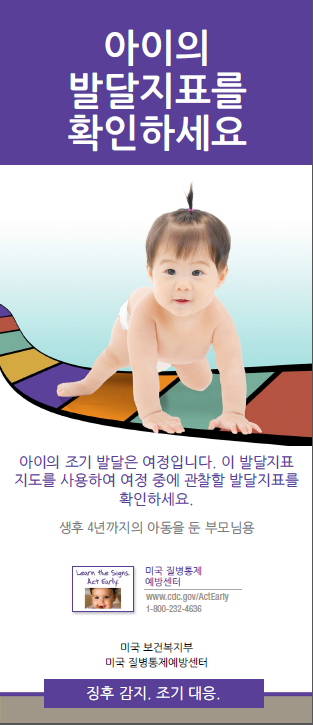
Minnesota LEND and MN Act Early: Partners in Community Outreach
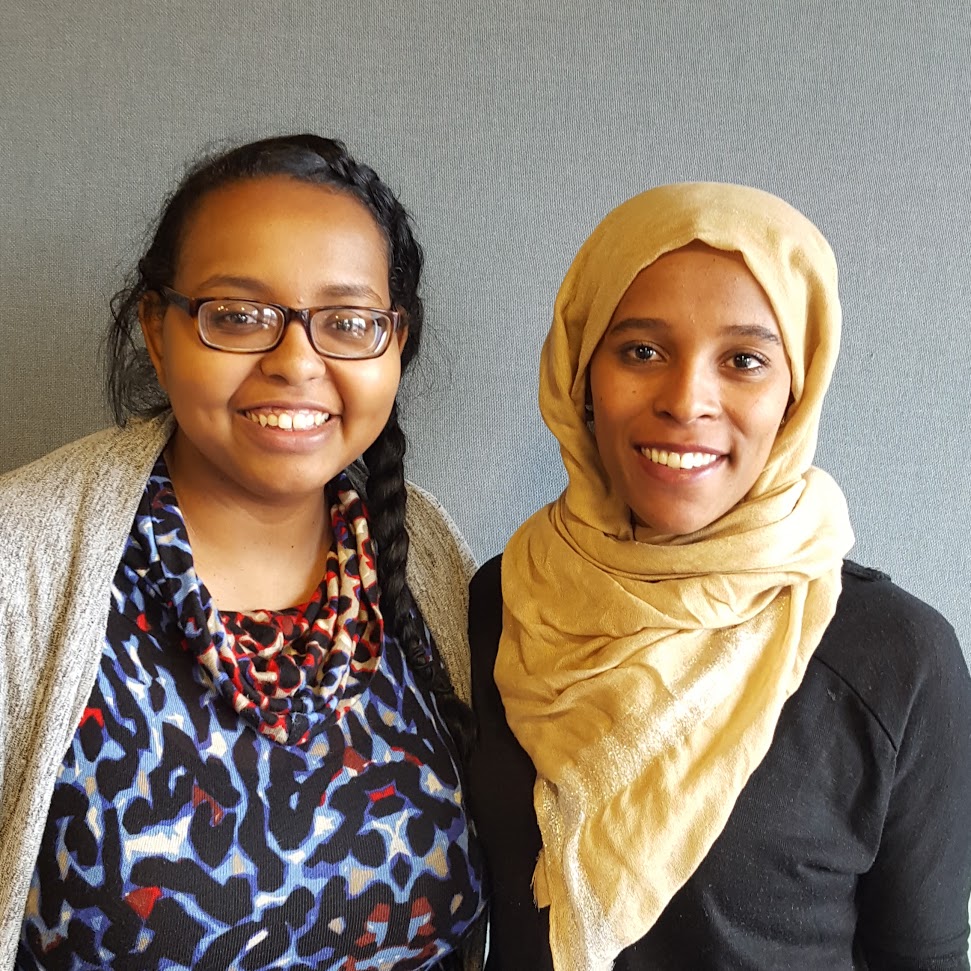 The National Center on Health, Physical Activity and Disability (@NCHPAD) and the Exercise C, The MN LEND and MN Act Early are partnering on innovative community outreach projects to promote early screening in diverse communities using the "Learn the Signs. Act Early." materials and resources. The MN Act Early Delegate Network recruited and trained Hmong, Somali, and Latino delegates to conduct outreach on the importance of developmental monitoring, developmental screening, and acting early if there are any concerns. In October 2015 the MN Act Early Delegate Network held an October 2015 Community Kick Off, where two MN LEND Fellows, Barite Gemada and Ashwak Hassan, became inspired to help promote early screening in their respective Oromo and Somali communities. Barite, who noted the absence of an Oromo Act Early delegate, decided to step into this role. Oromo is one of the largest East African communities in the Twin Cities. Barite is partnering with Ashwak, who additionally hopes to destigmatize mental illness, to create an Oromo and Somali video for YouTube and social media that promotes the importance of early screening and intervention as part of their MN LEND work. The National Center on Health, Physical Activity and Disability (@NCHPAD) and the Exercise C, The MN LEND and MN Act Early are partnering on innovative community outreach projects to promote early screening in diverse communities using the "Learn the Signs. Act Early." materials and resources. The MN Act Early Delegate Network recruited and trained Hmong, Somali, and Latino delegates to conduct outreach on the importance of developmental monitoring, developmental screening, and acting early if there are any concerns. In October 2015 the MN Act Early Delegate Network held an October 2015 Community Kick Off, where two MN LEND Fellows, Barite Gemada and Ashwak Hassan, became inspired to help promote early screening in their respective Oromo and Somali communities. Barite, who noted the absence of an Oromo Act Early delegate, decided to step into this role. Oromo is one of the largest East African communities in the Twin Cities. Barite is partnering with Ashwak, who additionally hopes to destigmatize mental illness, to create an Oromo and Somali video for YouTube and social media that promotes the importance of early screening and intervention as part of their MN LEND work.
Another MN LEND and Act Early partnership involves the new Act Early Website: https://ltsae.umn.edu/. The MN Act Early team with LEND Fellow, Sally Murphy, developed the website to promote the "Learn the Signs. Act Early." campaign and local MN Act Early activities. The website highlights Act Early community champions and links to national and local "Learn the Signs. Act Early." materials and other local screening resources such as "Help Me Grow." If you have any questions, please contact Rebecca Dosch Brown, MN LEND Program Coordinator at [email protected].
"Milestones" Across Montana
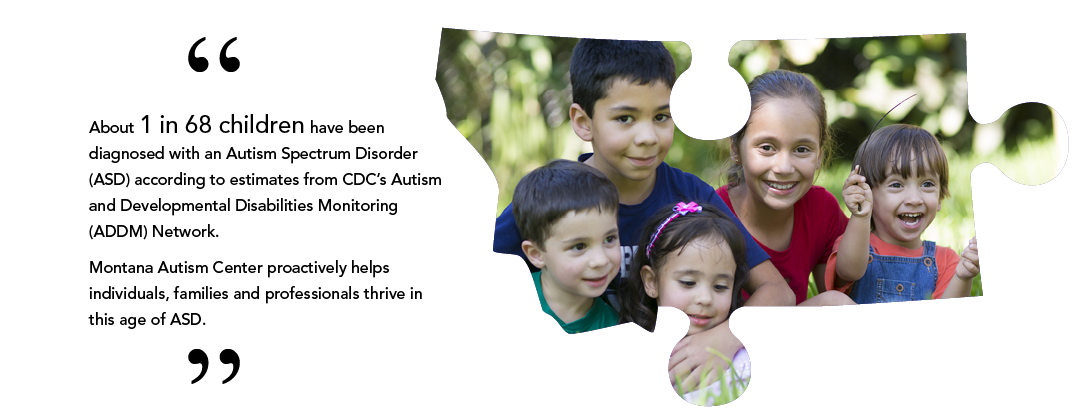 "500 ‘Milestones' booklets and 500 ‘Track Your Child's Developmental Milestones' brochures," was the request from Family Outreach Region IV, Inc., a private non-profit agency providing home-based education and support services to individuals throughout southwest Montana who have disabilities or developmental delays. "500 ‘Milestones' booklets and 500 ‘Track Your Child's Developmental Milestones' brochures," was the request from Family Outreach Region IV, Inc., a private non-profit agency providing home-based education and support services to individuals throughout southwest Montana who have disabilities or developmental delays.
Family Outreach, Inc. staff teach families and friends how to teach skills to children and adults with special needs. Staff recognized immediately the benefit of the "Learn the Signs. Act Early." resources, Milestones Moments and Track Your Child's Developmental Milestones. "We put a copy of the booklet and brochure in every family orientation packet," says Jackie Mohler, a program manager. "When our staff make home visits, they use the booklets as a starting place for discussion with parents and families. The milestones are a way for us to talk about their child's development in a non-threatening way," Jackie Mohler adds.
Just over 9,600 of these resources have been disseminated across Montana to Part C early intervention providers, Head Start and Early Head Start providers, public libraries, county and tribal health departments and county extension offices. Additional copies are available through the Montana Autism Center website, www.mtautism.org, a hub of current information resources for Montana families and health care providers.
|
News from the Act Early Network Grand Opening of the Autism and Developmental Disability Research Center (ADDRC) at the University of the Virgin Islands UCEDD
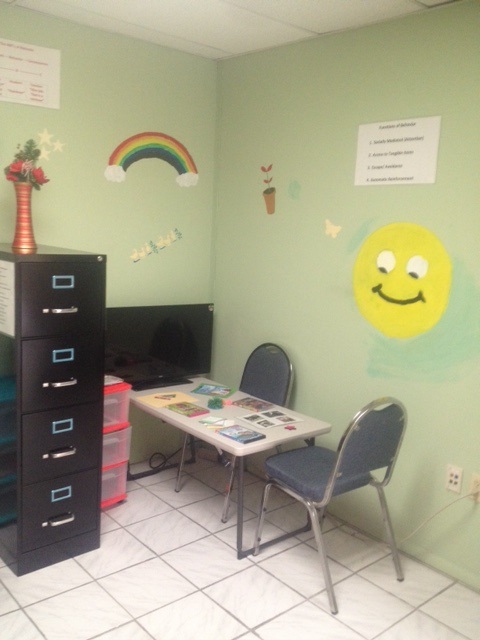 The staff at VIUCEDD is pleased to announce the grand opening of the ADDRC in the U.S. Virgin Islands on April 15, 2016. The ADDRC is a model research, training and technical assistance space that will focus on best practices related to early screening and detection of developmental disabilities, best practices in early intervention and best practices for treatment and the development of language and adaptive behaviors in youth aged 0-5. Dr. Kimberly Mills, associate director of VIUCEDD in partnership with public and private entities in the early childhood sector from the Virgin Islands community is leading up this effort. The staff at VIUCEDD is pleased to announce the grand opening of the ADDRC in the U.S. Virgin Islands on April 15, 2016. The ADDRC is a model research, training and technical assistance space that will focus on best practices related to early screening and detection of developmental disabilities, best practices in early intervention and best practices for treatment and the development of language and adaptive behaviors in youth aged 0-5. Dr. Kimberly Mills, associate director of VIUCEDD in partnership with public and private entities in the early childhood sector from the Virgin Islands community is leading up this effort.
The ADDRC as a training space will be accessible to parents, developmental pediatricians, teachers, other educational practitioners, head start and early head start employees and other allied health professionals. The work of the ADDRC will be informed by best early intervention practices such as the CDC's "Learn The Signs. Act Early." Program, methodologies related to ABA, SLP and OT practices and other groundbreaking early intervention research conducted by other agencies in the AUCD network. For more information contact Kimberly Mills, Ph.D., BCBA-D at [email protected].
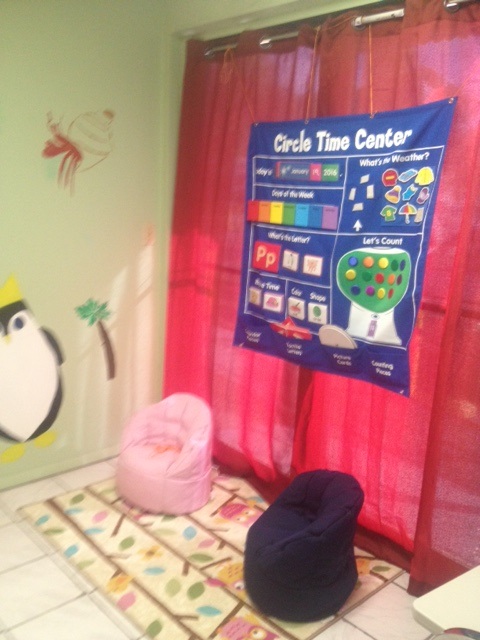
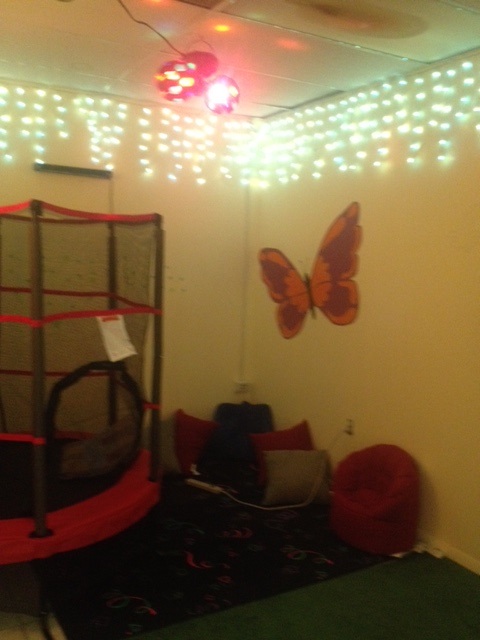
The University of Maine and the Maine Child Development Services launch statewide Autism Early Intervention Project
 The University of Maine's Autism Institute for Education and Research (MAIER) and the Maine Child Development Services partnered to bring a novel intervention program to families of young children with autism to the state of Maine. The University of Maine's Autism Institute for Education and Research (MAIER) and the Maine Child Development Services partnered to bring a novel intervention program to families of young children with autism to the state of Maine.
The Early Start Denver Model (ESDM) is aimed at early treatment of toddlers with autism to increase language, learning, and engagement. The teaching interventions are delivered within play-based and relationship-based activities. The primary goals include 1) brining the child into social relationships, 2) following the child's lead when socially engaging the child, and 3) developing activities to support learning. ESDM includes a strong family component and families are encouraged and coached to carryover the strategies during daily activities such as meal, bath and play.
The unique partnership between MAIER and the Maine Department of Education Child Development Services provides intensive training to primary service providers working with families and children as well as ongoing coaching and support to the providers. To date, 28 providers implement the model within the home, serving 45 toddlers with autism and their families.
Maine is the only state to implement the ESDM in a systematic statewide approach to early intervention in the natural environment. This model represents a more realistic approach to autism intervention for young children and their families.
For more information, please contact the Maine Autism Institute for Education and Research at [email protected] or 207-581-2353.
Making Care Coordination "Work" in Your Program or Community
 Need help identifying, adapting and implementing tools to support care coordination capacity building and measurement? The National Center for Care Coordination Technical Assistance (NCCCTA) provides technical assistance (TA) on the Pediatric Care Coordination Curriculum, Care Coordination Measurement Tool and the Pediatric Integrated Care Survey. The NCCCTA can also answer individual questions about making care coordination work in your program, community or state. Visit the website for more information and links to the above tools. Join the NCCCTA Community of Learners listserv. Need help identifying, adapting and implementing tools to support care coordination capacity building and measurement? The National Center for Care Coordination Technical Assistance (NCCCTA) provides technical assistance (TA) on the Pediatric Care Coordination Curriculum, Care Coordination Measurement Tool and the Pediatric Integrated Care Survey. The NCCCTA can also answer individual questions about making care coordination work in your program, community or state. Visit the website for more information and links to the above tools. Join the NCCCTA Community of Learners listserv.
Family Voices needs your Stories!
 Family Voices is currently working on an AMCHP AIM initiative, where they have been asked to gather stories from families regarding their experiences in the Marketplace (ACA) health plans. The stories are meant to highlight issues throughout a wide range of MCH populations, and not just families of CYSHCN, such as young adults (with and without special needs), pregnant women, families with and without CSYCHN. Family Voices would like to hear your ideas about what issues the families you serve are struggling with. Your perception of what needs to be shared to improve care for families and children is always right on target. In addition, below are some ideas that AMCHP/AIM has identified. Family Voices is currently working on an AMCHP AIM initiative, where they have been asked to gather stories from families regarding their experiences in the Marketplace (ACA) health plans. The stories are meant to highlight issues throughout a wide range of MCH populations, and not just families of CYSHCN, such as young adults (with and without special needs), pregnant women, families with and without CSYCHN. Family Voices would like to hear your ideas about what issues the families you serve are struggling with. Your perception of what needs to be shared to improve care for families and children is always right on target. In addition, below are some ideas that AMCHP/AIM has identified.
• Costs: Individual's ability to afford copays and deductibles
• Maintenance/continuity of coverage
• Adequacy of provider networks
• Comprehensiveness of benefits
• Adequacy of materials describing plans: Accurate? Were the materials available in languages other than English?
• Health plan responsiveness to unique issues/ needs of CYSHCN enrollees
• Any other issue not mentioned above that you have encountered, and you think needs to be brought to light
Please email Maria Isabel Frangenberg directly at [email protected] if you have questions or if you have an issue that needs to be showcased in a story.
"Physical Developmental Delays: What to Look For"
 Now, a new tool by the American Academy of Pediatrics (AAP), the CDC, and Parent Project Muscular Dystrophy can help parents tell when a child's physical development may be cause for concern. The interactive tool, "Physical Developmental Delays: What to Look For" helps parents of children ages 5 and younger assess their child's motor development. Now, a new tool by the American Academy of Pediatrics (AAP), the CDC, and Parent Project Muscular Dystrophy can help parents tell when a child's physical development may be cause for concern. The interactive tool, "Physical Developmental Delays: What to Look For" helps parents of children ages 5 and younger assess their child's motor development.
|
|
|


